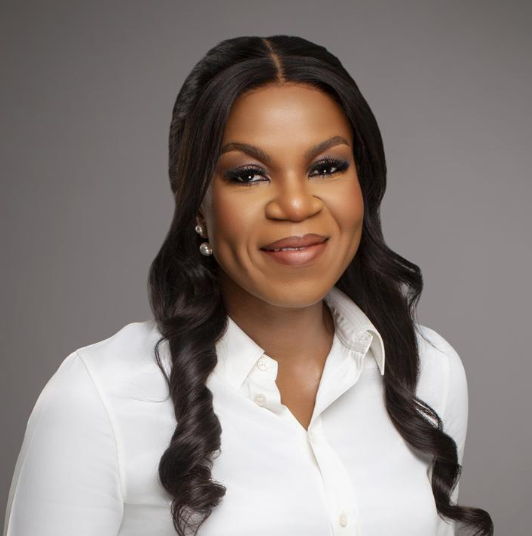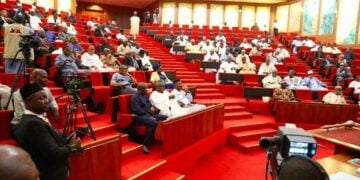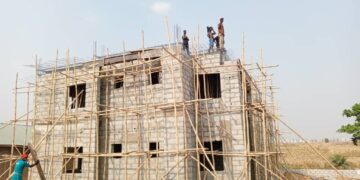No fewer than one billion Africans lack access to clean cooking solutions as approximately 600 million people continue to live in energy poverty, says CEO and special representative of the UN secretary-general for Sustainable Energy for All, and Co-Chair of UN-Energy, Damilola Ogunbiyi.
Ogunbiyi stated that Energy access is a fundamental driver of economic growth, an area she advised African governments to channel lots of resources to create clean cooking energy for all.
“Projections indicate that Africa’s energy demand will more than triple by 2040. This surge in demand, coupled with the current energy deficits, necessitates urgent interventions. The critical question for Africa and much of the developing world is how to provide more energy but lower emissions,” she stated.
While disclosing that, Sustainable Energy for All (SEforALL) is an international organisation hosted by the United Nations Office for Project Service (UNOPS), with a global mandate to accelerate progress on the energy transition in emerging and developing countries, she added that, the organisation collaborates with governments and partners worldwide to end energy poverty, accelerate the deployment of renewable energy solutions, and combat climate change.
“The SEforALL analysis, conducted in 2024, aims to understand the scale of the challenge and identify the urgency required to meet global energy targets. This analysis builds on the latest data from the ‘Tracking SDG7: The Energy Progress Report 2024,’ providing a snapshot of the world’s current situation across the four targets of SDG7: electricity access, clean cooking access, renewable energy, and energy efficiency,” she pointed out.
The analysis, she stated, shows that “if we do not urgently raise ambition, the number of people in Africa without electricity access may stay the same by 2030. If we are to achieve Sustainable Development Goal 7 (SDG7) by 2030, we must provide electricity access to 157 million people per year and increase clean cooking access for 334 million people each year.”
However, despite the scale of action needed, she noted that, there are examples of leadership that are already thriving on the continent, such as, Ghana, Kenya, and Rwanda who are on track for full electricity access by 2030, offering inspiration to other countries.
Ghana, she said, has invested significantly in renewable energy sources, particularly solar power, Kenya has focused on diversifying its energy mix with investments in geothermal, wind, and solar power while Rwanda is increasing energy access through innovative approaches and government commitment.
Africa’s capacity for renewable energy potential is huge but remains unrealized, she said, adding that the continent holds 60 per cent of the world’s best solar resources yet accounts for just 1% of installed solar photovoltaic(PV) capacity.
“Currently, sub-Saharan Africa relies heavily on diesel and petrol generators, with customers spending nearly $20billion annually on fuel alone. This reliance is costly and unsustainable.
“Several initiatives are underway to boost Africa’s renewable energy resources, but it is critical that this be done in a way that creates opportunities for local communities, and general economic prosperity for countries. One of the most ambitious initiatives that is trying to boost the clean energy economy in Africa is, Mission 300, spearheaded by the World Bank Group and the African Development Bank working together with SEforALL, the Global Energy Alliance for People and Planet (GEAPP), and The Rockefeller Foundation,” she emphasised.
This initiative, she said, aims to provide electricity access to 300 million people in Africa by 2030.
“By utilising Africa’s abundant renewable resources, Mission 300 aims to create a sustainable and resilient energy infrastructure that can support economic growth and improve the quality of life for millions of people.
“One of the key components of Mission 300 is the development and implementation of National Energy Compacts. These compacts outline bold commitments and the critical actions needed to advance energy access in a reliable, affordable, and sustainable manner. The initiative will be supported by innovative financing mechanisms, bringing public, private and philanthropic capital together to support the implementation of Mission 300.,” she pointed out.
Disclosing that, Africa’s demand for power is projected to grow eight-fold by 2050, she added that, Renewables are expected to meet much of this demand, creating a significant market opportunity for establishing local green manufacturing hubs, even as SEforALL forecasts that by 2030, up to 14 million energy transition jobs could be created in Africa.
The energy transition could offer the means for bringing in equity in the global energy markets, a philosophy that we are guided by in our work on green industrialisation across developing countries, she stressed.
While SEforALL is also a key partner of the Global Africa Business Initiative (GABI), which is playing a key role in advancing energy access and the energy transition across Africa, she added that, annually, GABI’s ‘Unstoppable Africa’ event in New York engages the world in conversations that truly matter, focusing on critical issues such as energy access and energy transition.
To her, “By encouraging investment in energy-transition technologies, GABI aims to create jobs, improve healthcare and education, enhance digital inclusivity, and boost overall economic productivity. Through these efforts, GABI is positioning Africa as a key player in the global energy landscape and paving the way for a more sustainable future.
“The energy transition is already underway in Africa, but we must accelerate it. We know the scale of what needs to be done. We have the solutions. Now, we must act! This is Africa’s moment to power its future—sustainably, equitably, and at scale.”





